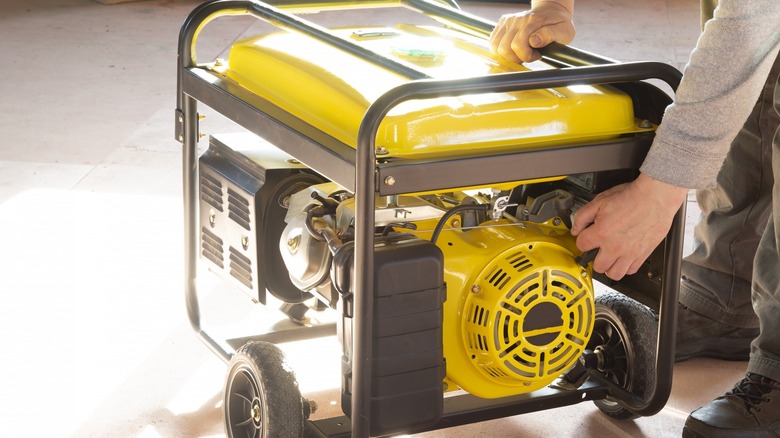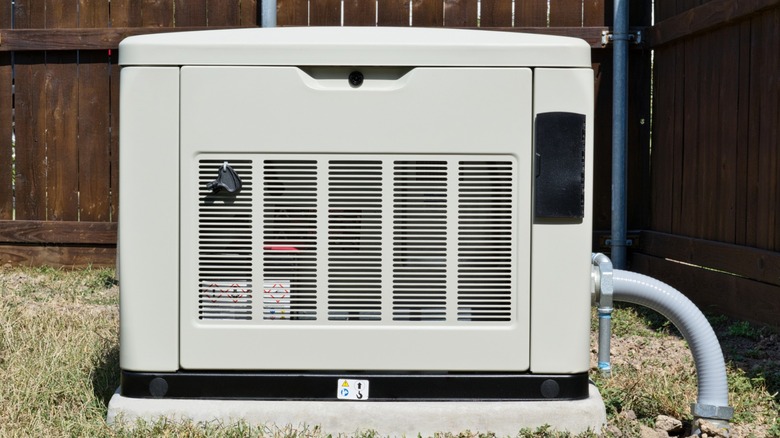Can You Use Premium Gas In A Generator? Here's What Happens If You Do
Premium gas comes with a reputation. It has a sleek but silent marketing campaign behind it. Some claim it burns cleaner, while others whisper a promise of better performance. So when you're staring at your generator chilling silently in the garage or powering through a blackout, it's tempting to think about whether or not to give it the good stuff: premium gas. The simple truth is that most portable generators don't care what type of gas you use. Regular gas or premium gas, it doesn't matter. But things like that rarely ever stop at the simple answer, and there's a bit more going on here.
Choosing the right generator for your home is important. When it comes to the portable ones, they are built to run on value fuel. That is, the 87-octane, unleaded gas with up to 10% ethanol. That's the go-to fuel recommended by experts. The engines in these machines have low-compression designs that simply don't benefit from higher octane fuel. So, you don't gain extra power or a smoother performance. You just pay more for nothing really. Fuel with an ethanol content of more than 10% can lead to phase separation, corrosion, clogged fuel lines, and a cranky carburetor. So, you may actually be putting your generator at risk by opting for the premium, E15, and E85 stuff.
What happens if you use premium gas in your generator?
One of the mistakes everyone makes when using a generator is putting in the wrong fuel. So maybe you slipped and poured in the priciest, highest octane at the station. You rush to the search bar in a panic, wondering what's going to happen. Don't fret. The first thing you should know is that you won't see any performance gains — higher-grade fuel won't boost a generator's power. So, although the premium is more expensive, it provides the same output. Also, when it comes to fuel stability, you will see no benefit. Most premium gas can still include ethanol, which means its behavior in absorbing moisture and causing separation remains unchanged. So your generator is exposed to the same risks, whether the fuel is labeled premium or not.
The biggest difference you'll notice when using premium gas is the hit your wallet takes. Premium gas costs more per gallon. As such, running tens of gallons during a blackout adds up fast, without any real advantage. You end up draining your budget while your generator stays politely unimpressed. The only possible advantage is shelf life. Ethanol-free fuel, or fuel with stabilizer additives, resists degradation better. So filling the tank with premium non-ethanol may help. That said, this benefit comes from ethanol-free and stabilized qualities, not from the higher octane itself.

